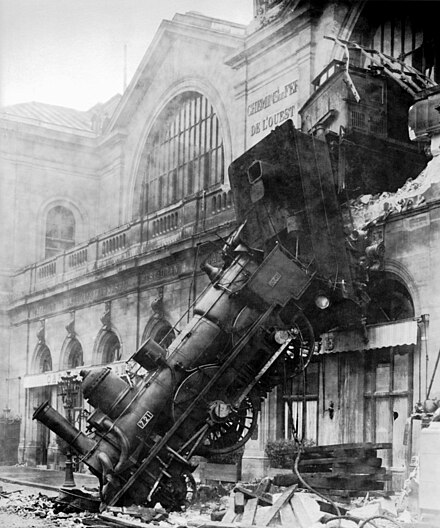Failure
Failure is the state or condition of not meeting a desirable or intended objective, and may be viewed as the opposite of success.[1] The criteria for failure depends on context, and may be relative to a particular observer or belief system. One person might consider a failure what another person considers a success, particularly in cases of direct competition or a zero-sum game. Similarly, the degree of success or failure in a situation may be differently viewed by distinct observers or participants, such that a situation that one considers to be a failure, another might consider to be a success, a qualified success or a neutral situation.
It may also be difficult or impossible to ascertain whether a situation meets criteria for failure or success due to ambiguous or ill-defined definition of those criteria. Finding useful and effective criteria, or heuristics, to judge the success or failure of a situation may itself be a significant task.
Cultural historian Scott Sandage argues that the concept of failure underwent a metamorphosis in the United States over the course of the 19th century. Initially, Sandage notes, financial failure, or bankruptcy, was understood as an event in a person's life: an occurrence, not a character trait. The notion of a person being a failure, Sandage argues, is a relative historical novelty: "[n]ot until the eve of the Civil War did Americans commonly label an insolvent man 'a failure'".[2] Accordingly, the notion of failure acquired both moralistic and individualistic connotations. By the late 19th century, to be a failure was to have a deficient character.[3]
Product failure ranges from failure to sell the product to fracture of the product, in the worst cases leading to personal injury, the province of forensic engineering.
Most of the items listed below had high expectations, significant financial investments, and/or widespread publicity, but fell far short of success. Due to the subjective nature of "success" and "meeting expectations", there can be disagreement about what constitutes a "major flop".
Sometimes, commercial failures can receive a cult following, with the initial lack of commercial success even lending a cachet of subcultural coolness.[4][5]

